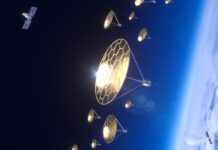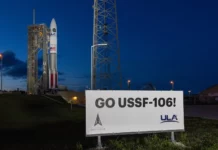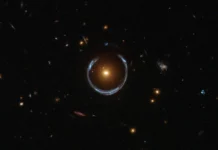The second attempt by a Japanese startup to launch its solid-fuel rocket ended in chaos: a few minutes after takeoff, the Kairos rocket spiraled downward. The failed launch was yet another setback for Japan’s private space industry after a series of explosive rocket launch attempts earlier this year.
Japan’s Space One launched its Kairos rocket on Wednesday from the Spaceport Kii launch pad in Kushimoto, Wakayama Prefecture. Initially, the rocket seemed to be flying normally, but things quickly began to fall apart. Approximately two minutes after takeoff, the Kairos appeared to lose control of its course and began to fall down. The rocket self-destructed after detecting abnormalities in the control of the first stage engine nozzle and flight path, Space One Director Mamoru Endo told reporters during a post-launch briefing, Reuters reports.
Kairos carried five small satellites from the Taiwan Space Agency, Japanese companies Lagrapo, Space Cubics and Terra Space, as well as a fifth customer who wished to remain anonymous.
This was Space One’s second attempt to become the first commercial company in Japan to independently launch satellites into Earth orbit (the Japanese space agency JAXA has accomplished this feat many times, working with firms such as Mitsubishi Heavy Industries). The startup first attempted to launch Kairos in March, but the launch vehicle exploded a few seconds after leaving the tower in Wakayama Prefecture. The rocket’s autonomous self-destruct system was triggered by abnormal flight parameters about five seconds after launch. Kairos was carrying an experimental satellite for the Japanese government.
The three-stage Kairos rocket, equipped with solid-fuel engines and a liquid-fueled upper stage, is designed to launch payloads weighing up to 550 pounds (250 kilograms) into low Earth orbit. With its 59-foot (18-meter) rocket, Space One hopes to compete with companies such as SpaceX and Rocket Lab by delivering satellites into space quickly and at an affordable price. According to Kyodo News, the company intends to launch 30 rockets annually until the 2030s. Space One may have to wait a little longer to reach that pace, which seems possible with Kairos, a rocket similar to Rocket Lab’s Electron.
“We don’t see this event as a failure,” Space One President Masakazu Toyoda told reporters after the failed launch, according to AFP. “We believe that the data and experience gained … are extremely valuable, and we think they will be useful for future challenges.”
JAXA is also looking to compete in the new space age. Despite some setbacks of its own, JAXA launched its new H3 rocket on the second attempt in February. Japan’s Epsilon S rocket, on the other hand, exploded during a test in late November.









